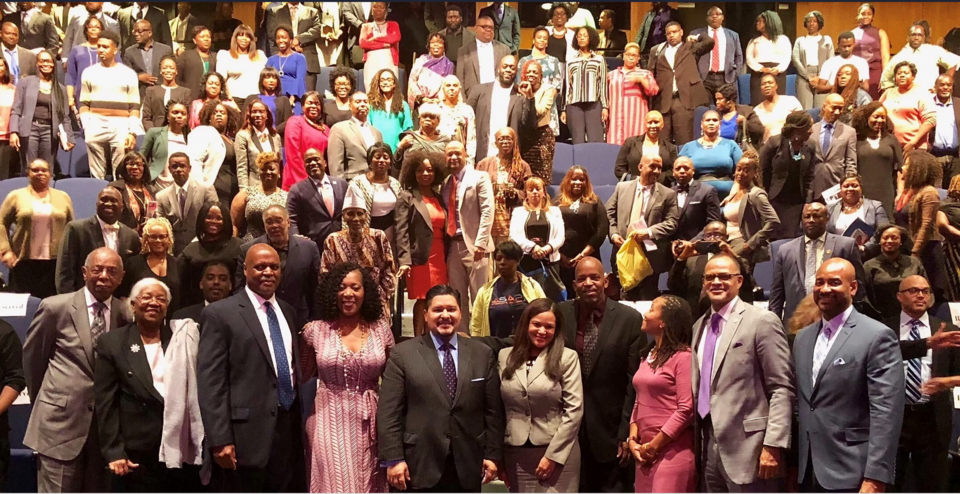The year was 1999. It was Martin Luther King, Jr.’s birthday, and elementary school teacher Michelle Patterson was reading a storybook about the civil rights leader to a classroom of first-graders in Brooklyn.
Patterson relished opportunities to share Black history with her students, particularly during their most impressionable years. But this year, her lesson took an unusual turn: When she arrived at the part in the story where MLK shares his dream of little black boys and black girls joining hands with little white boys and white girls and walking together as sisters and brothers…” she looked up from her book into the sea of tiny black faces listening intently and hesitated.
She wanted to cry.
“It hit me like a ton of bricks. I thought, Wait a minute; this is a lie,” said Patterson. “I’m talking about this like it’s history, but we’re still segregated.”
That was the moment Patterson realized a comprehensive Black studies curriculum was needed for Black children to better understand the world around them and, more importantly, how to make their own history make sense.
Today, Patterson– a teachers advocate and lead advisor on disproportionality at the NYC Department of Education– along with her brother, George Patterson– the senior director of My Brothers Keeper Grant-Funded Programs for the NYC Department of Education– are part of a coalition of organizational leaders who are bringing a Black studies curriculum to all of New York City’s public schools through an initiative called Black Edfluencers-United (BE-U).
George Patterson wrote a white paper in 2019 on behalf of BE-U with current Schools Chancellor David Banks which got the attention of other other educational leaders in the state, including Dr. Lester W. Young, Jr., Chancellor of the Board of Regents.
A key coalition was forming at the city and state level. But they knew that for doors to open at the DOE, they would need more buy-in from the city. So they met with Adrienne Adams who, at the time, was the head of the Black Asian and Latino Caucus and now is the current Speaker of the City Council.
Adams agreed a Black studies curriculum was indeed crucial.
Then, 2020 rolled around, and with it came COVID. The quarantine actually provided an opportunity to focus and meet regularly over Zoom without interruption. Through the pandemic, they met often, enlisting stakeholders in the arenas of policy, education and non-profit and forming committees around advocacy, policy, capacity, and culture and community.
City Councilmember I. Daneek Miller pushed the plan as a key policy agenda item during the last of his term-limited year, which then led to the historic earmark. And in September 2021, the New York City Council Black, Latino and Asian Caucus provided round-one of funding -- $10 million to execute an Education Equity Action Plan (EEAP) centered around a Black studies curriculum for K-12.
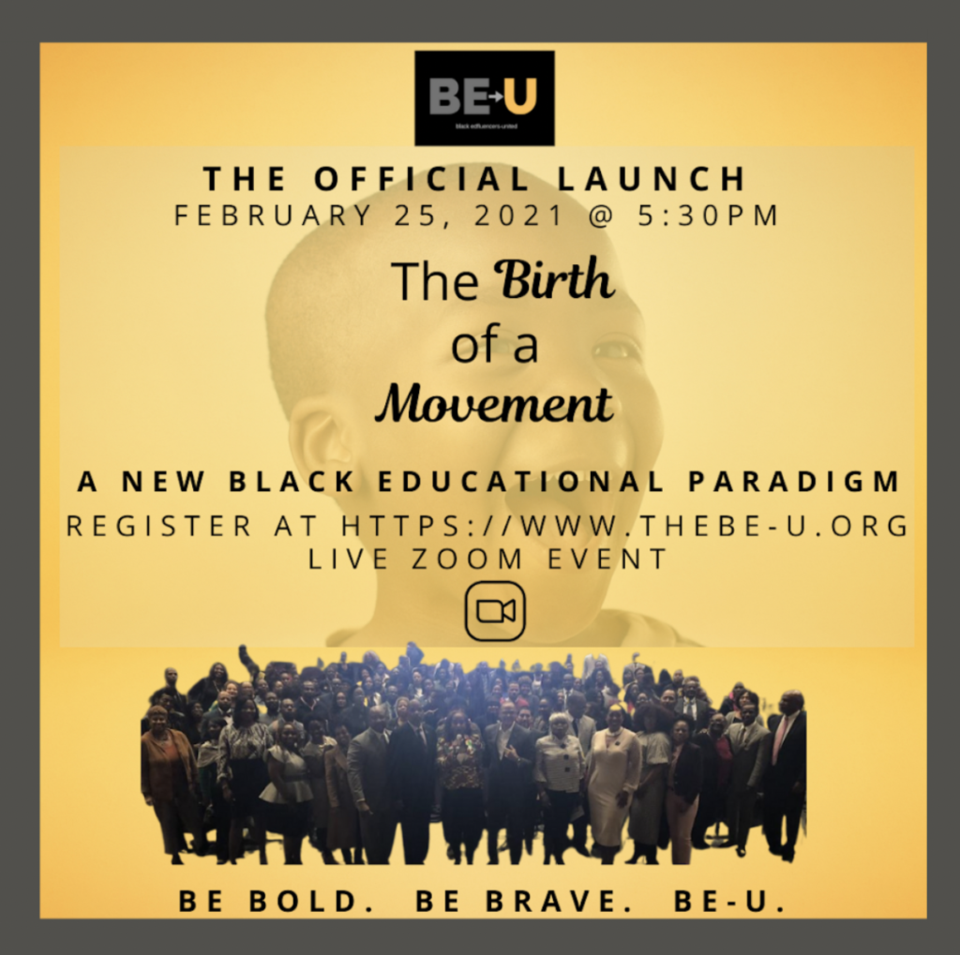
Most recently, they were approved another $10 million for round-two.
The funding is spread amongst a coalition of organizations working together but along different lines of educational influence, including The Black Education Research Collective, The United Way of New York City, The Eagle Academy Foundation, The Association of Black Educators of New York, Inc. (ABENY), and Black Edfluencers-United.
The group calls itself the EEAP Coalition, a movement that not only is history-making in its scope but also, and if successful, will serve as a blueprint for adoption at public schools across the country. The curriculum, which will be woven into the existing public school curriculum, currently is in its pilot phase, gaining support amongst educators, parents and community members across the city.
“It’s groundbreaking because it represents operational unity and putting individual agendas aside,” said Dr. Blake, president of BE-U. “We are developing the curriculum with pedagogues [who are] talking about solutions for our children– these are Black educators who come from the community and have shared the same trauma.”
The interdisciplinary Pre-K-12 Black Studies curriculum will demonstrate the contribution of ancient Black societies and civilizations and their impact on the modern world.
“Folks have been doing Black Studies since the beginning of time. We have educators and parents all over the city that have done this work and really stand on their shoulders,” said Nina Simone-Stovel, an EEAP leader and spokesperson. “I think our stakeholder engagement approach really is a true testament to how groundbreaking this will be.”
And while we see other states turning away from Black studies, to see this investment by New York City is absolutely groundbreaking, because the curriculum is not just for Black students; it’s for all public school students, Simone-Stoval added.
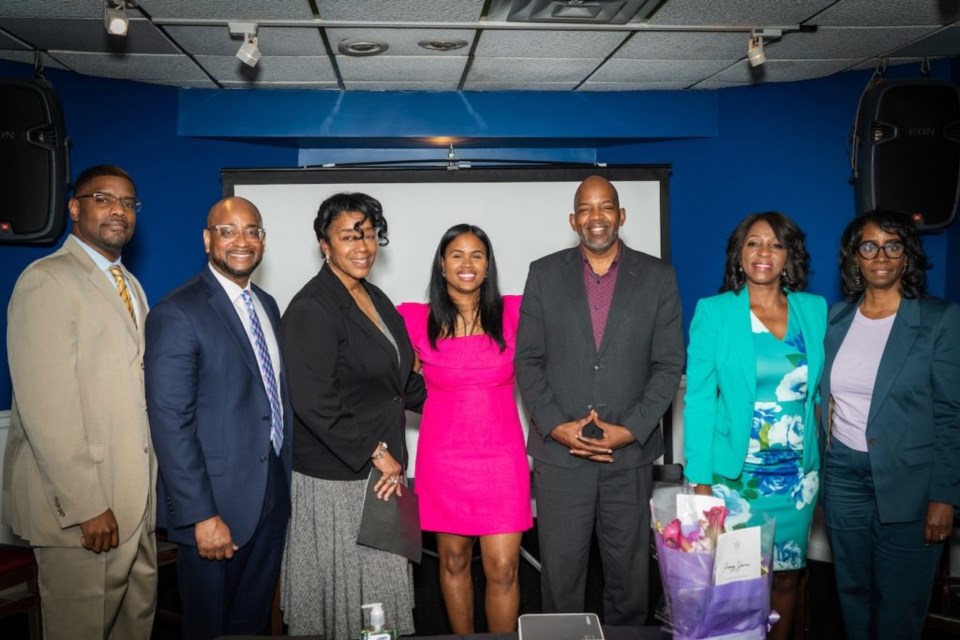
And it has landed in the nick of time, becoming a counter to the nonsense of mostly white parents in predominantly white counties across the U.S. voting to ban books of black and brown narratives under a patently false and racist notion that is part of a “Critical Race Theory” curriculum.
“When you hold back someone’s history, it’s actually violence against that community,” said George Patterson. “The most significant thing you can do for a child is teach them where they come from. If we’re not doing that and doing that with purpose, then you are not educating them in the right way.”
And Black New Yorkers agree: A 2021 study of registered voters found that the majority of respondents believe a Black studies curriculum was needed to improve the overall educational system. Still the findings were not revelatory, nor is the conversation around a need for Black studies curriculum one that is new; It’s been a topic of serious discussion for decades. Children need to see themselves– both in the classroom and in the textbooks– to fully realize their potential.
“Why is it okay to omit an entire race from the curriculum?” said Michelle Patterson. “Why is that okay to do day after day after day after day?
"Those against so-called ‘CRT’ say they don’t want a culturally responsive curriculum … Well you already have a culturally responsive curriculum: It is responsive to white, middle-class males.”
Studies show that Black students who have just one black teacher by third grade are 13% more likely to enroll in college—and those who have two are 32% more likely. The findings, led by researchers from Johns Hopkins University and American University, were published by the National Bureau of Economic Research in a working paper titled, "The Long-Run Impacts of Same-Race Teachers."
Dr. Blake pointed out that it’s not just the product that is important in its success; the roll out will play a big role: “We’ve discovered that we need to have some mindset readiness for educators around the curriculum,” he said. “We have a 7-Point Actionable Item Agenda that will push out other initiatives, like increasing STEAM studies, getting teachers licensed in Black Studies
"We also need to think about experiential learning and how we’re going to use technology; even something like crypto currency and the new economy.”
Dr. Blake said this year– in year one– they are bringing together a commission of community leaders, educators and scholars and raising awareness to the general community about the curriculum through pop-up events, attending board meetings and setting up casual discussions in places where the community convenes, such as hair salons or block parties.
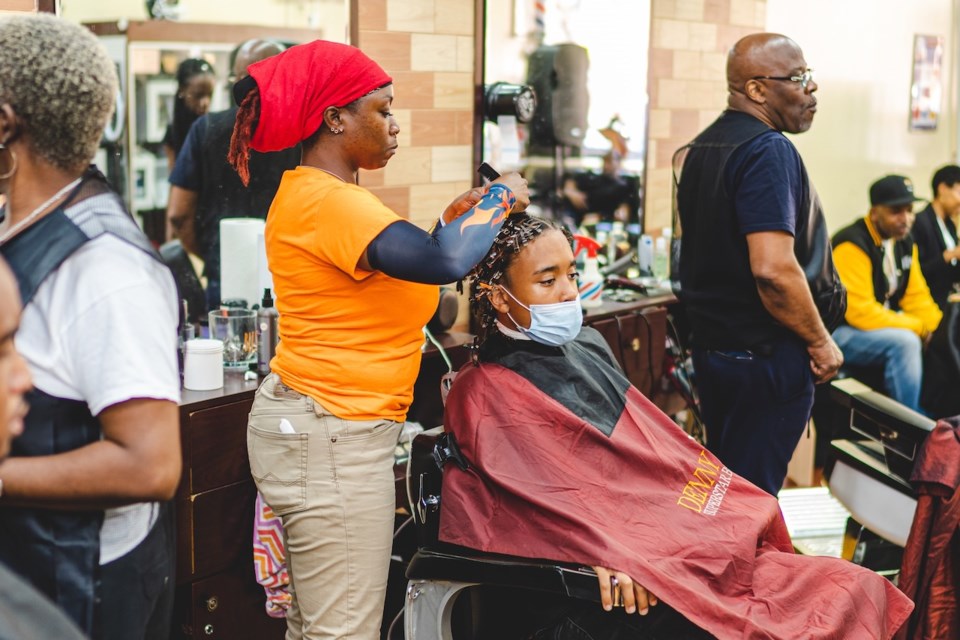
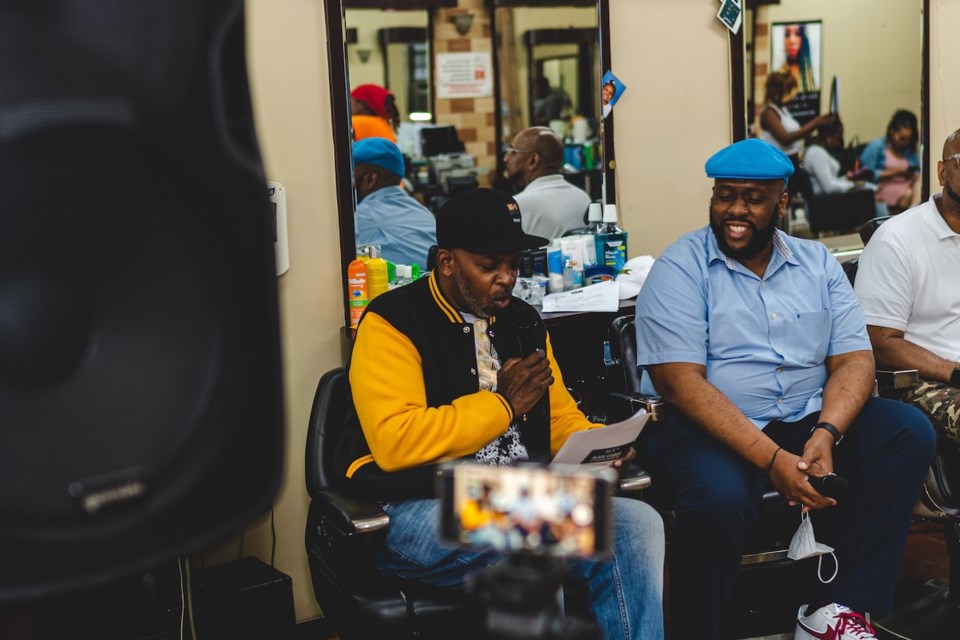
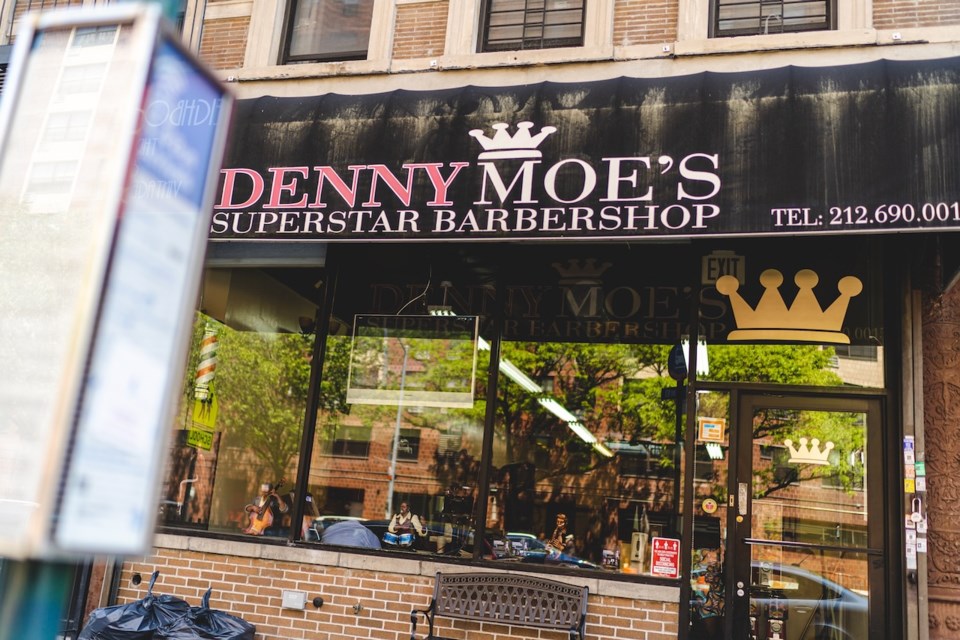
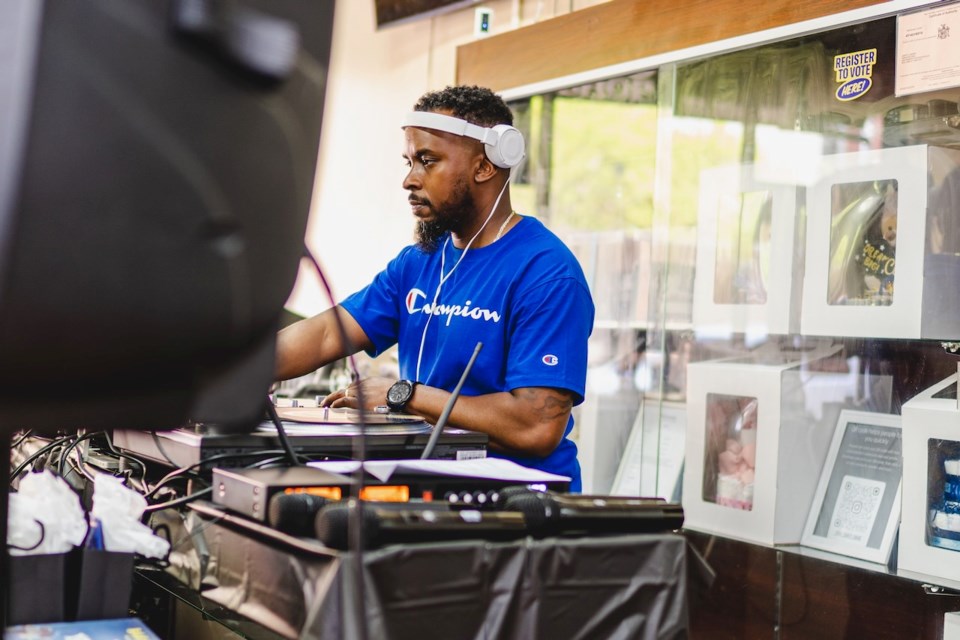
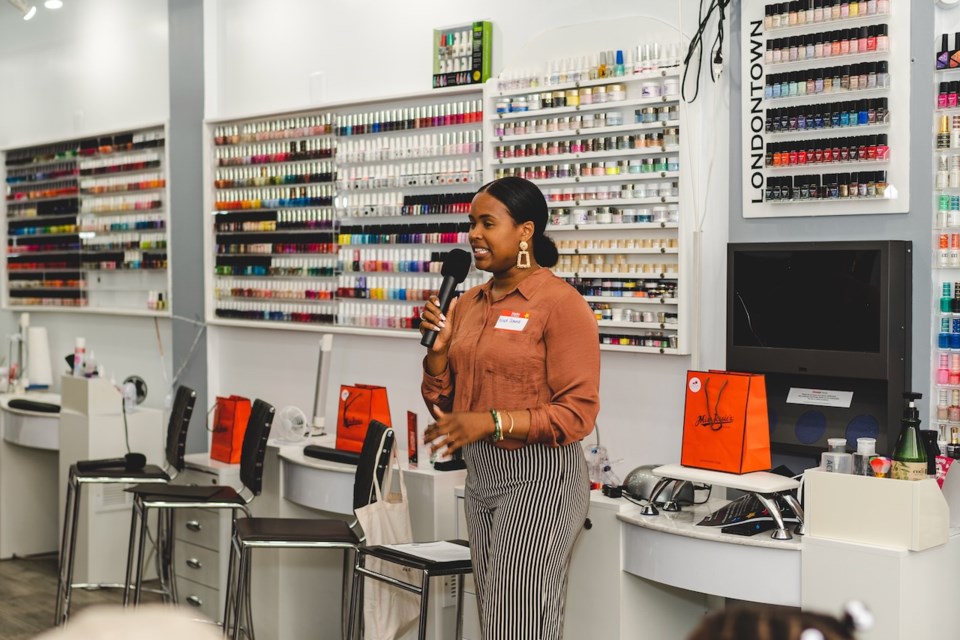
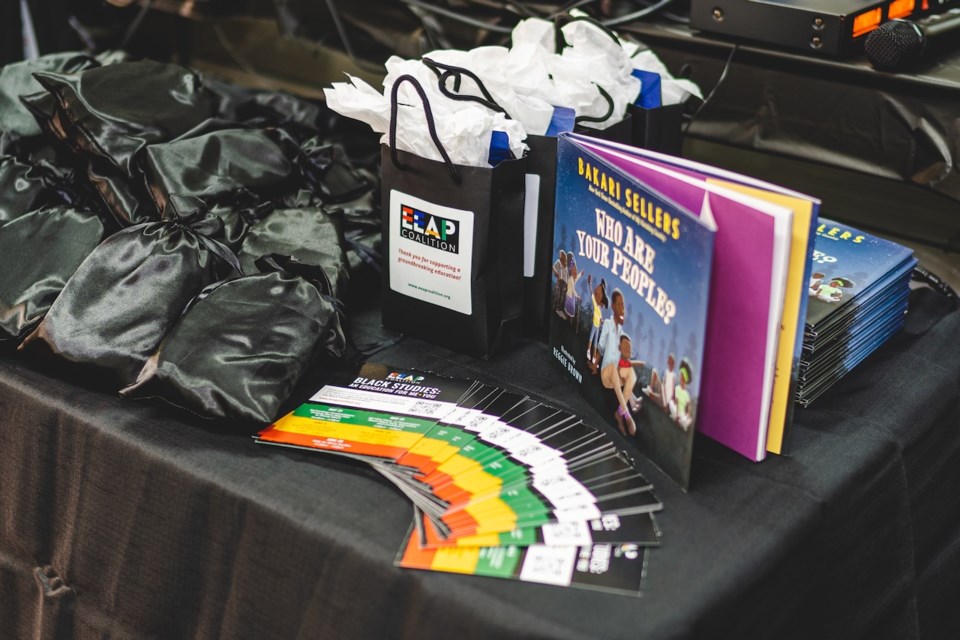
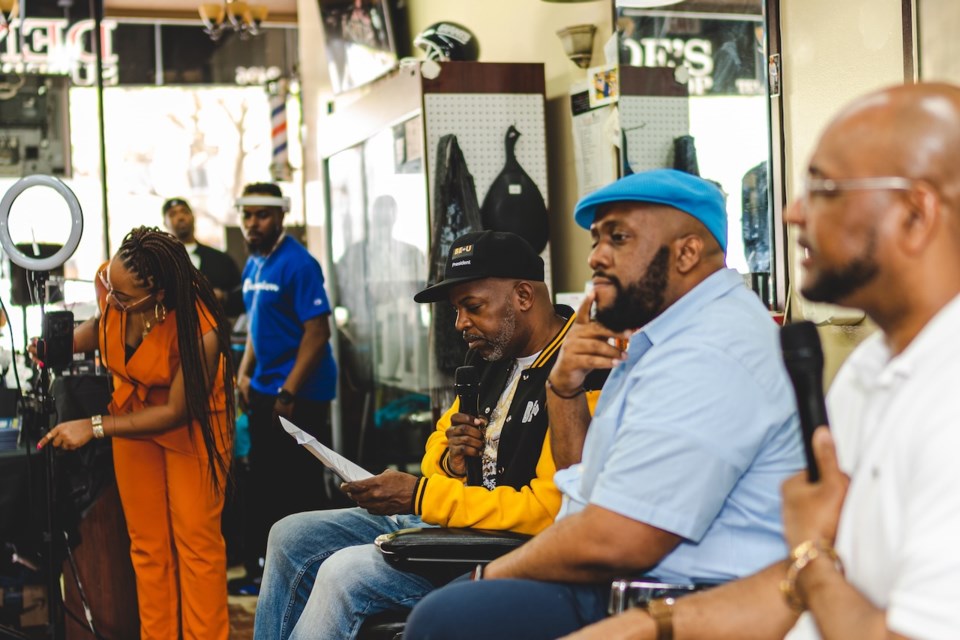
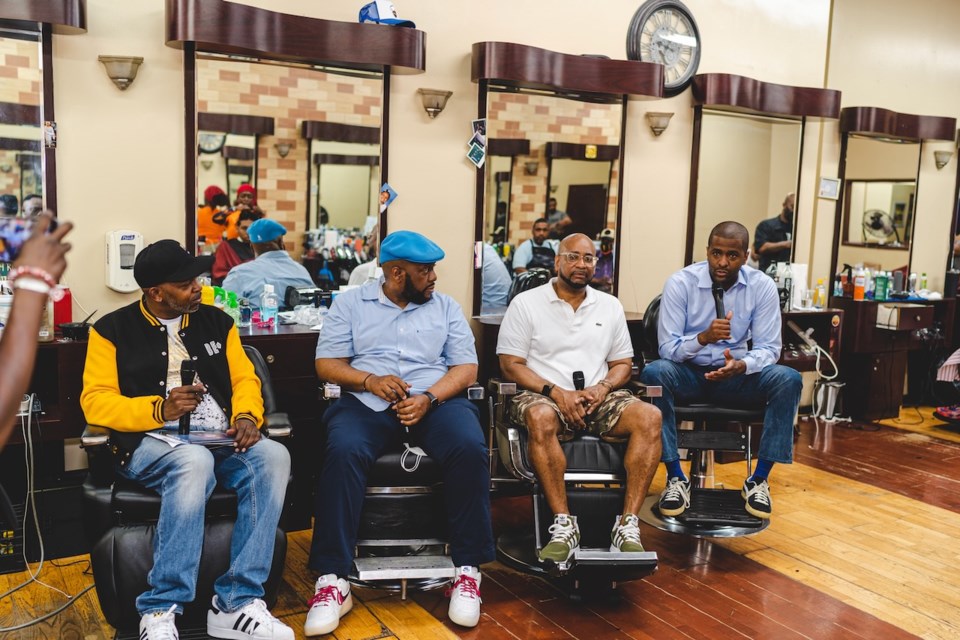
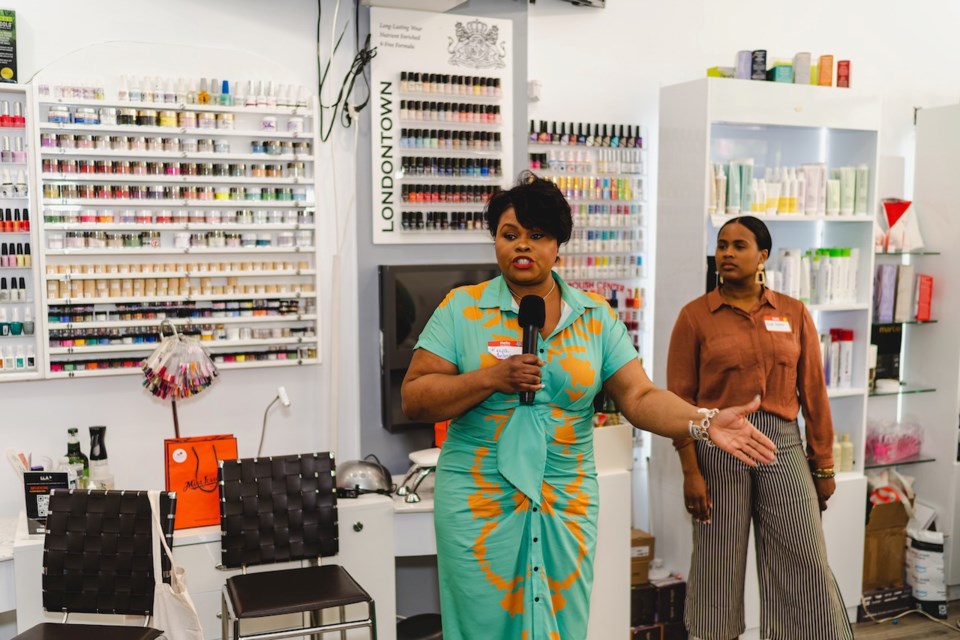
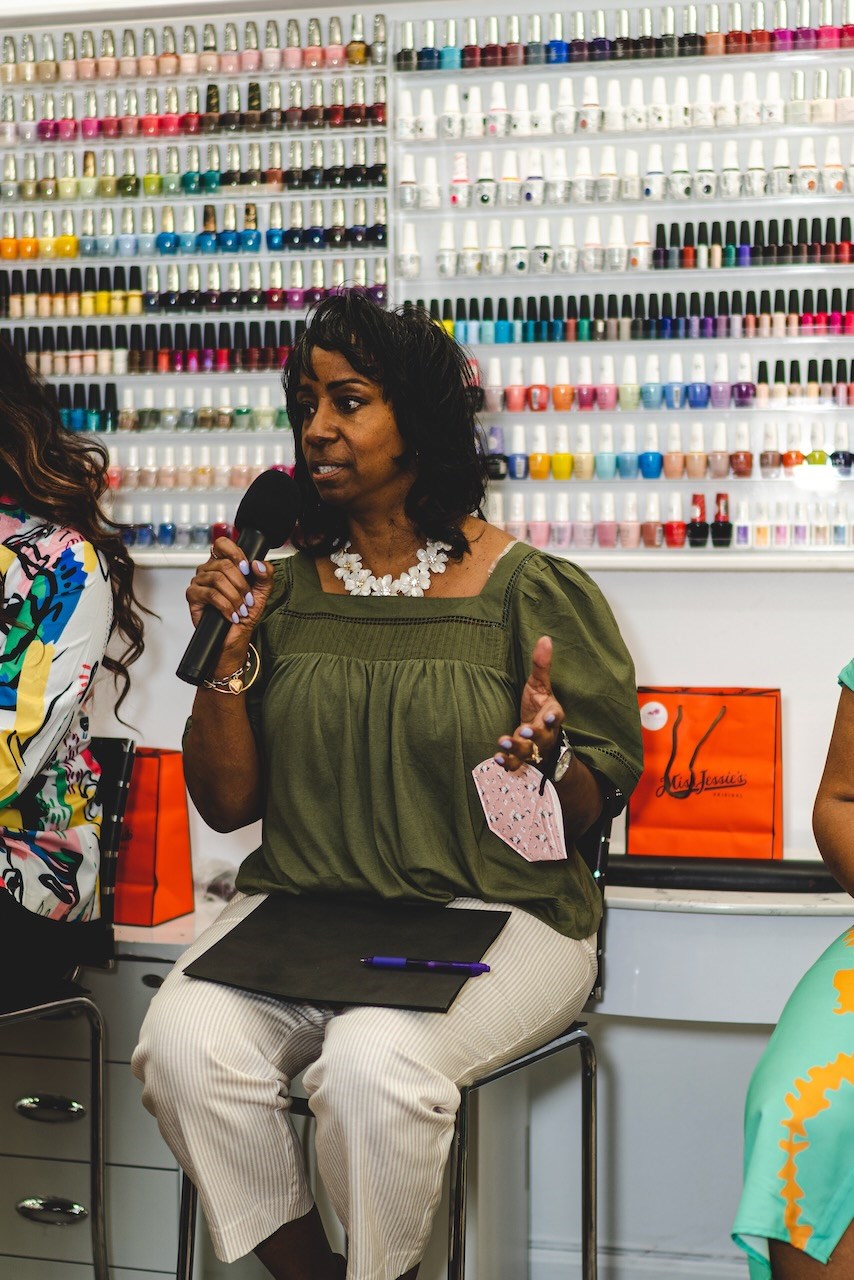
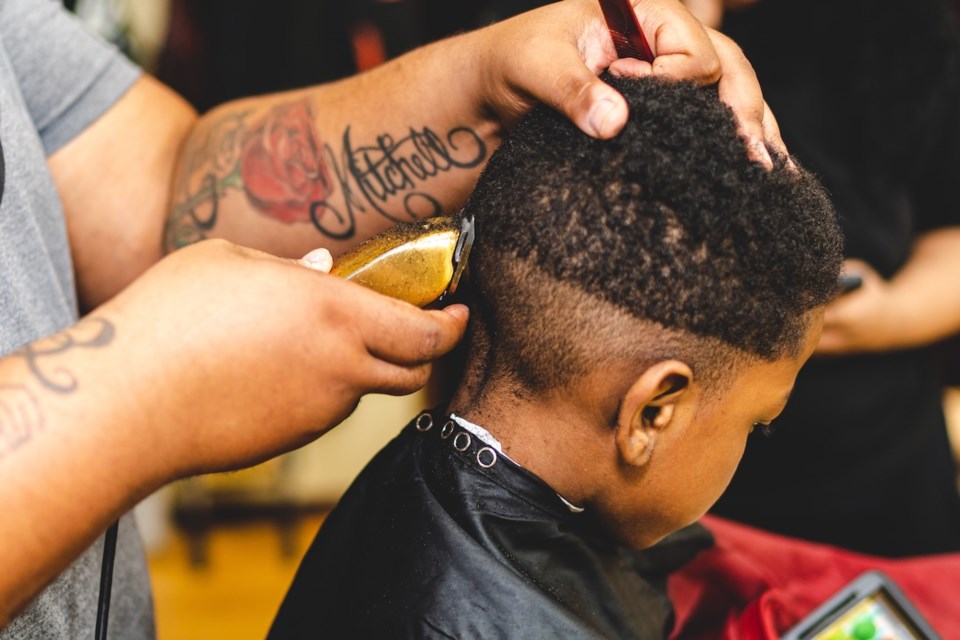
Already they've held pop-up visits at barber shops, hair salons and nail salons around Brooklyn, including Bak2Basics Nail Salon & Spa and Denny Moe's Barber Shop-- places where the community is relaxed and sitting and open to discussions around politics, society and life in general.
Year-two (fall 2023), EEAPC will roll out a pilot of the Black studies curriculum in a handful of schools, including mindset readiness for teachers, training and building cohorts. And year-three, (fall 2024) EEAPC will be ready with a full integration of the Black studies curriculum into all New York City public schools.
“If you look at how they have been able to demonize Black studies around the country, it’s through organizing and mobilizing parents against it,” said Dr. Blake. “Well, now, we need our parents, our community leaders to raise their voices. Ask your city councilmember if they know about the Black studies curriculum; go to your local school and tell them, ‘I know the Black studies curriculum is coming. How do you plan to roll this out and implement it in this school?’
“You have to raise your voice and say, We support this, and we need this, so that the negative narrative that is being created about Black people, our stories and our history is not the only narrative out there.”

